I've been dying to play a 4X game lately, but having yet to really dig into Civilization VII (which has landed to some pretty middling reviews!), and which follows in the wake of some pretty disappointing 4X games (Humankind, Millennia, Ara) over the past few years, last week I reached back for one of my favourite--albeit contentious--games of all time: Sid Meier's Colonization.
(Note: this story was originally published in February 2025. It has been republished for the 4th of July holiday.)
I started playing it mostly because it is, to this day, the most laser-focused 4X game available, and as a result the least meandering. Colonization is everything the genre does best--exploration, combat, building little towns and putting little guys to work--and almost none of what it has struggled most with, like convincing diplomacy and dead turns.
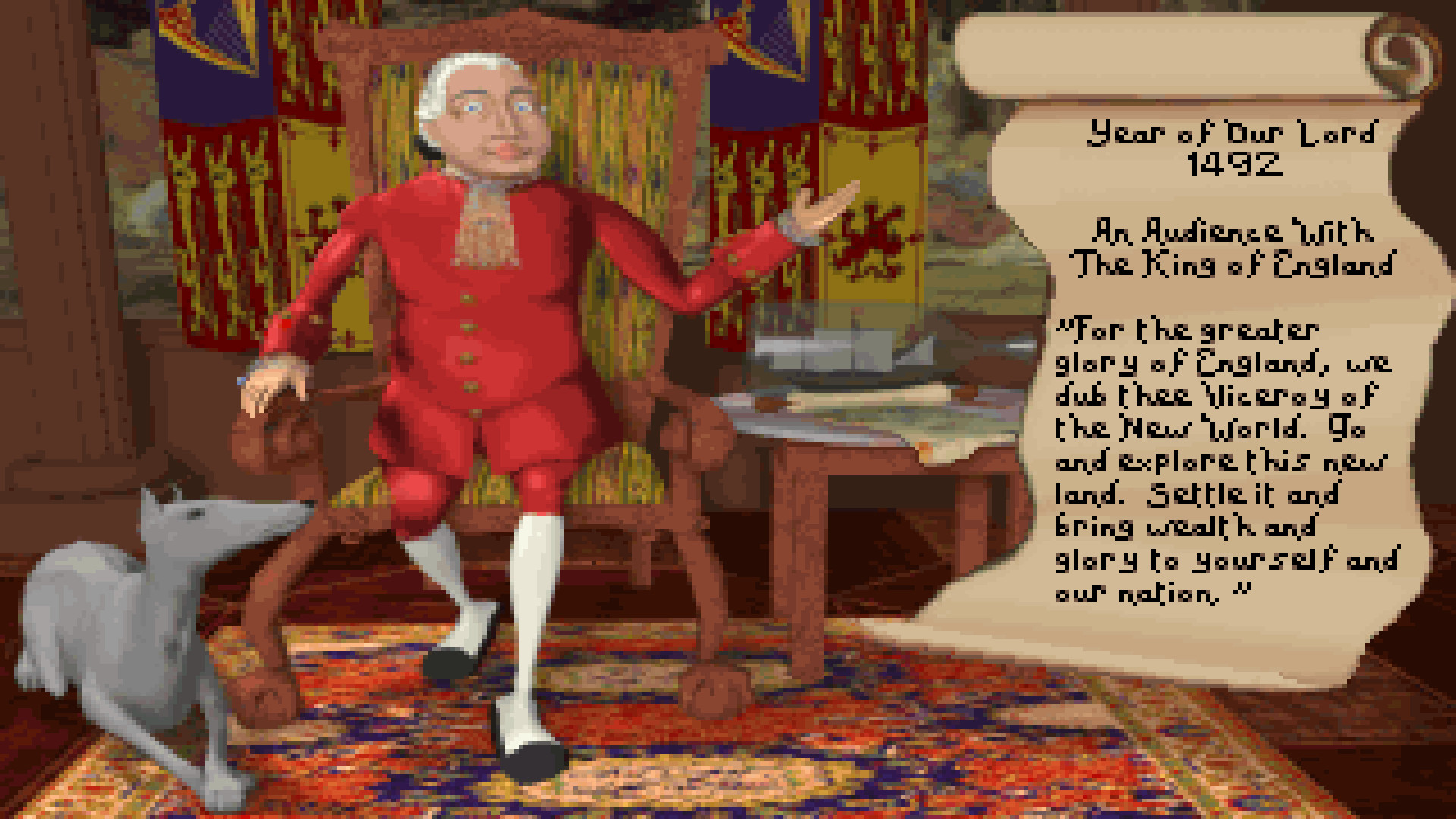
For those who have never played (or heard!) of it: Colonization was released in 1994 on the PC, starts in 1492 and tasks you with choosing to represent one of four imperial European nations--England, Spain, France or the Netherlands--then setting forth to found new colonies in the new world. It is, superficially, a game very much like Sid Meier's more famous series, Civilization, in that you drop guys on a map, build settlements and dig roads and fields between them, but with one notable difference: in Colonization you are controlling a nation of individual guys.
Some are carpenters, others scouts. There are soldiers, blacksmiths, weavers, priests and teachers. The key to Colonization is recruiting and assigning these guys--and they're all guys--to the parts of the colonies they're best suited to, in order to maximise the amount of resources you can extract, maximise the amount of stuff you make out of those resources and maximise the amount of money you can make selling that stuff back to eager European markets.
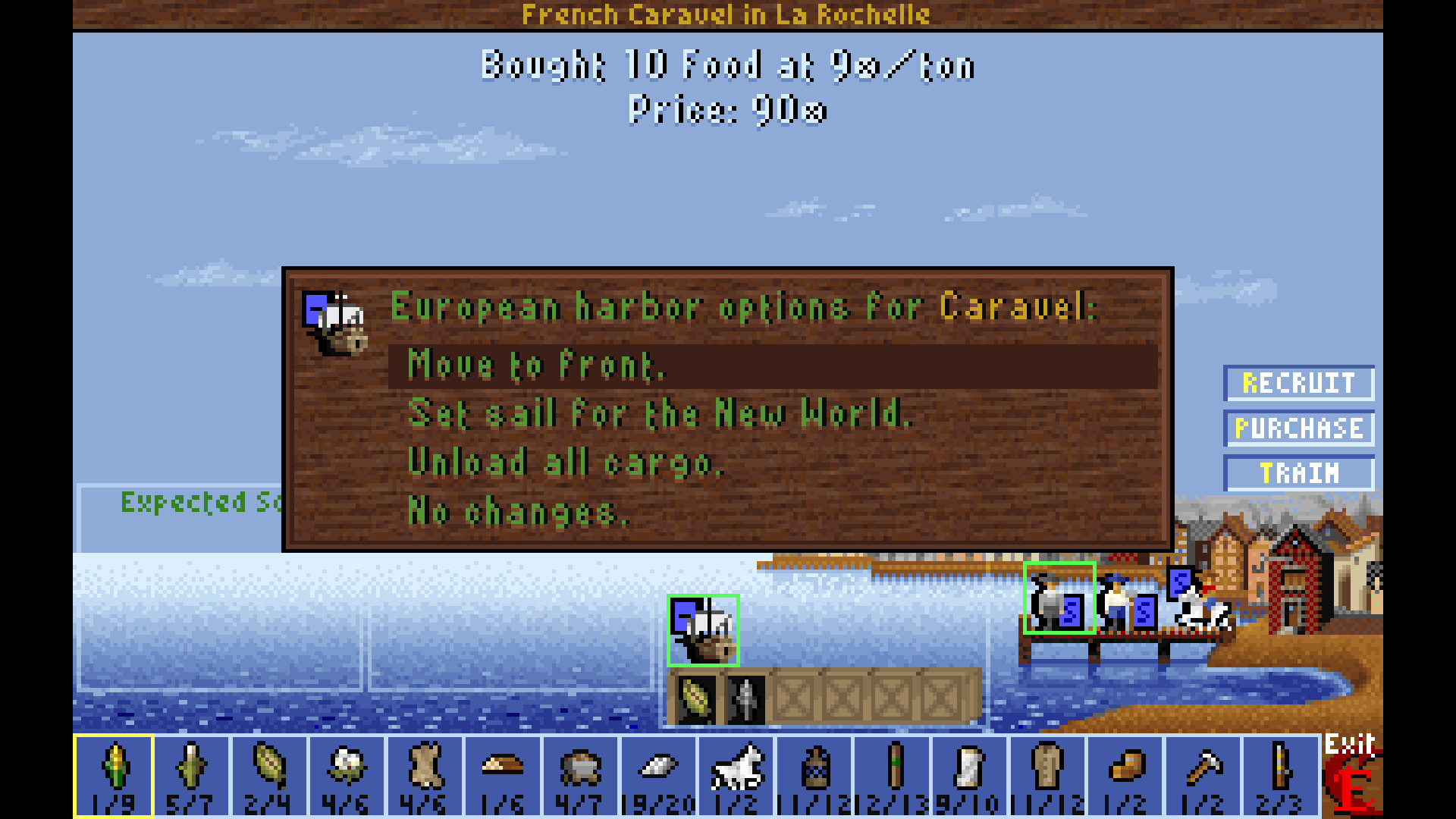
Got a colony near a forest? Get a lumberjack and carpenter in there. Next to some mountains? Ship an ore miner over from the old country, dig that metal out of the ground and get a blacksmith to turn it into tools, which you can then turn into muskets. The degree of specialisation available to your population and settlements in this game goes way past Civ, and makes the act of choosing, growing and tending to your settlements the best in the genre.
Making Colonization even more interesting is that events don't meander towards a finish line, but rather towards a sharp point. The aim is to build up your colonies to a sufficient strength that you can, ala 1776, break free from your mother country. This involves a war of independence where, just like 1776, a seemingly overpowering opponent can be cut down in the woods by some plucky upstarts who know the land, which they've been building on and working for over 200 years.
Between managing your colonies, tweaking your trade market, dealing with other European nations and preparing for your own [town name] Tea Party, there's never a dull moment in Colonization, and the way the 4X structure works so perfectly for the setting and time period makes it feel like the entire genre was made just for this. For a game from 1994 to loom so large over the genre even in 2025, even after all the Civilization games and their competitors, is testament to the strength and clarity of its design.
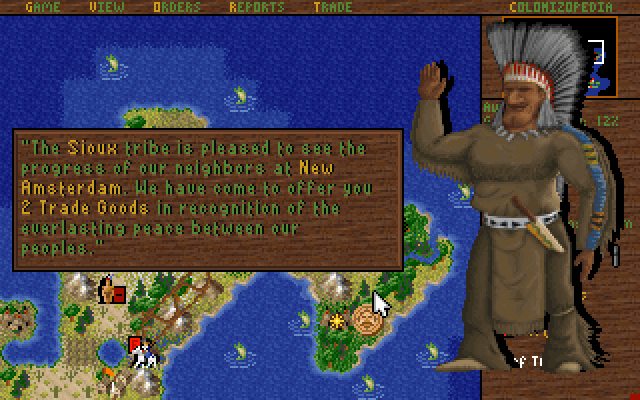
Only, uh. There's a reason we don't really talk about it as much these days. This is also a game with substantial problems. That land you're colonising and developing isn't empty; when you first step off your ships in 1492 you discover that the new world is home to a myriad of nations and tribes, already living in settlements and cities of their own.
Colonization may be the perfect 4X game, but it's also the perfect expression of imperialist thought in strategy video game design, of the idea that progression is everything, that the land you're invading is there to be exploited. Civilization has long had this issue--it's a game that too frequently equates technological progress with dominance--but while there's little introspection to be had in that game when your musketmen roll over some tribal warriors, in Colonization its multiple layers of history and context are unavoidable.
To its slight credit, and I'm being extremely generous relative to the time it was released here (2009's Empire Total War can only wish it was this nuanced), this game isn't an overt genocide simulator. It certainly allows for the extermination of historical Native American tribes, ranging from the Aztecs to the Sioux, and will even reward the player for doing so by freeing up more land for colonies and offering cash prizes for the destruction of larger settlements. But you are not forced into that route.
Players are also given the choice--an ahistorical video game fantasy--of living peacefully alongside these nations, sharing resources and knowledge and respecting traditional boundaries. You're rewarded for this too: Tribes will send people to live with you as bonus colonists, trade with you and even teach your colonists expert and much-needed skills like fishing.
These reward pathways are lopsided though, reflecting the way so much strategy gaming has been trapped within Western history's framework. Sure, there's a peaceful option on the table, but the amount of gold and resources you get for killing the indigenous people off makes it by far the most advantageous pursuit from a gameplay perspective. Colonization isn't making you commit genocide, but in recreating a specific point in history (1492) and asking you to get to another point in history (1776), it's basically telling you the best way to get there is to...follow that history.
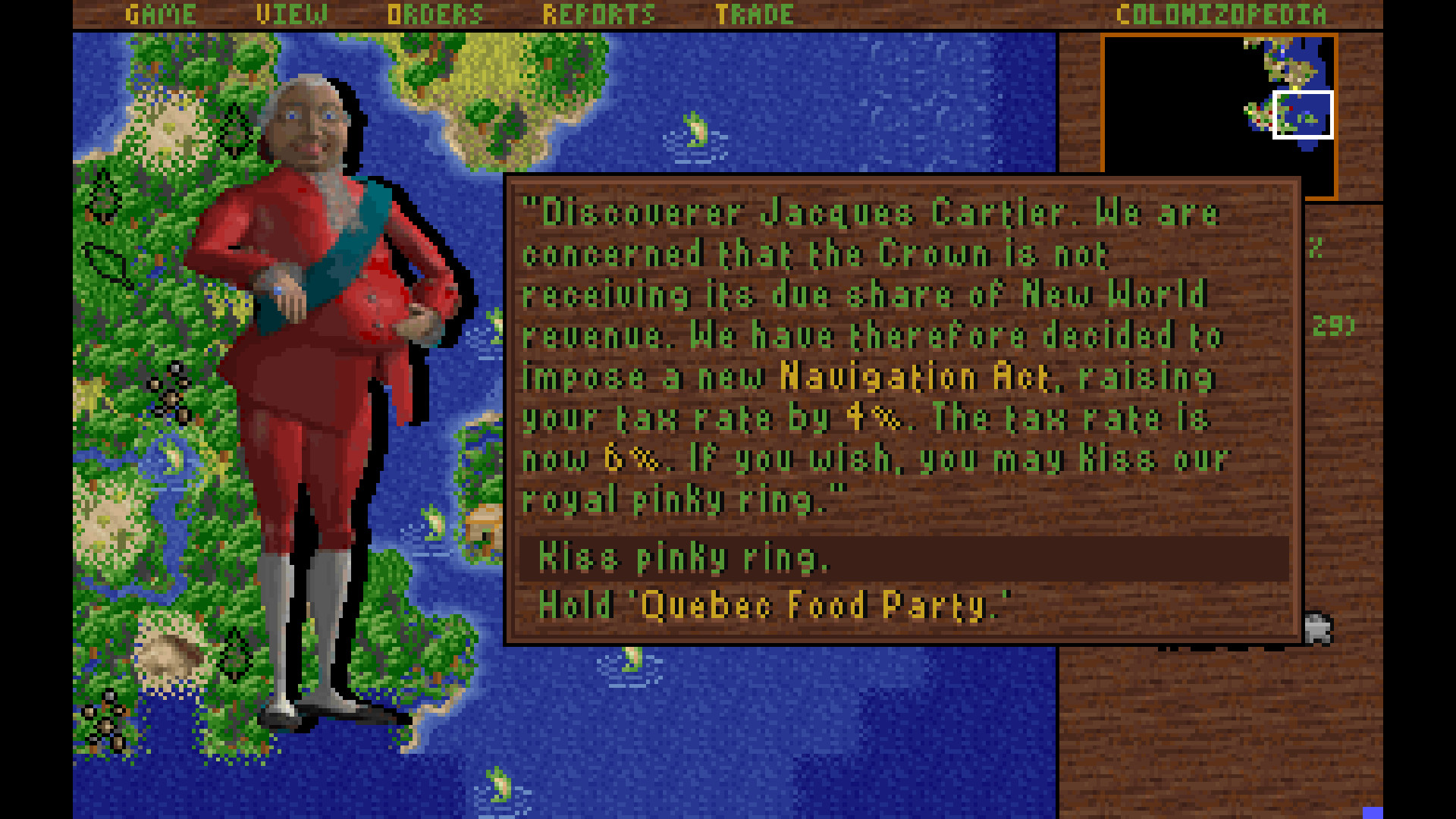
The ultimate goal of the game, regardless of which European nation you start out as, it to build your own United States of America, and the game's story as it is, told through cutscenes and your increasingly hostile diplomacy with your ruling monarch, is full of familiar-sounding ideals when it comes to the American foundational ethos. You're embarking on a brave mission. You build a colony by enduring hardships. You end up fighting a War of Independence to protect your people, to serve freedom in its opposition against tyranny. The same touchstones you see echoing throughout American history books and popular media can be found in Colonization.
The thing is, the narrative arc of Colonization is as wafer-thin as America's; you're really just building your little video game America exactly the same way the real one was built. From the mass importation of religious fanatics, ruthless opportunists and murderous imperialists, to the seizure of vast tracts of land to the genocide of entire nations.
(It's very notable the game doesn't allow for a more gradual, Canadian or Australian-style pathway to nationhood, let alone one like New Zealand's, which featured a formal and lasting treaty signed with the Māori people).
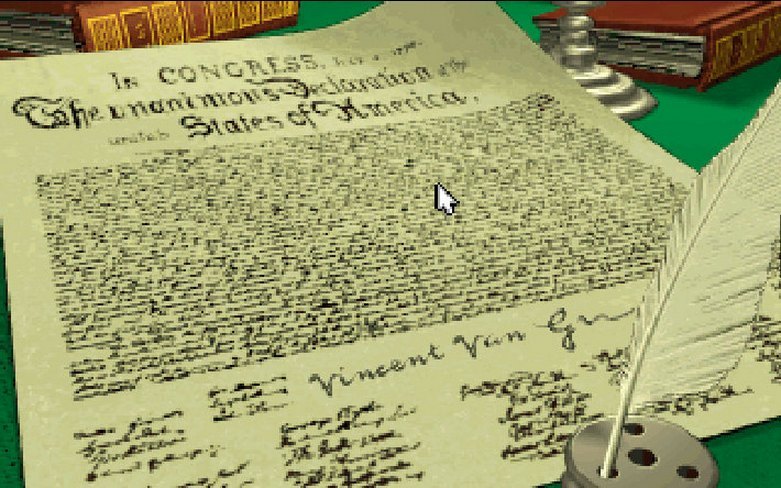
The conflict between what the United States thinks it is and what it actually is has been perhaps the most dominant force in the study of American history, not to mention popular culture's depiction of it, which can range everywhere from fairy tales like The Patriot to American History X. Rarely has that played out so literally as Colonization, a spin-off strategy title by some guys toying with the 4X genre that has, by design or not, ended up being perhaps the most American video game ever made.


